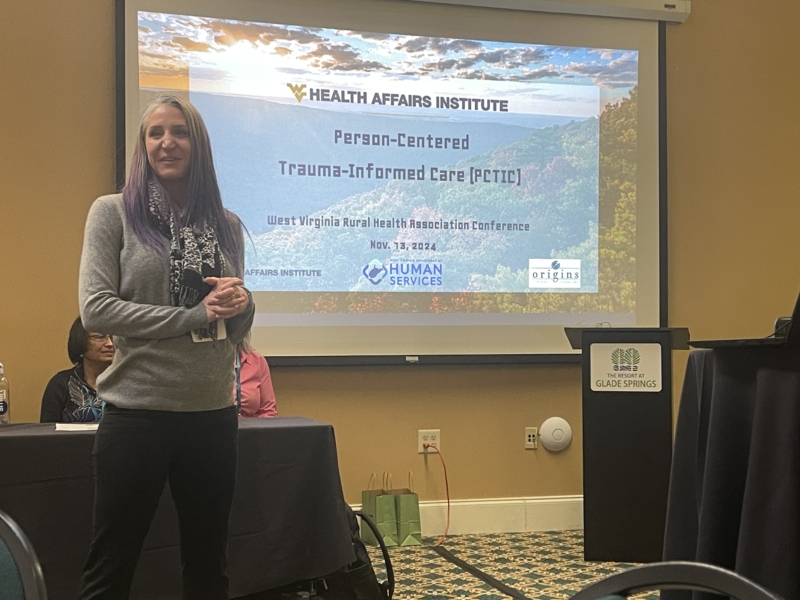Written By: Lori Chelius
Since 2021, Andi and I have had the privilege of collaborating with the West Virginia University Health Affairs Institute and the West Virginia Department of Human Services on a project that has been incredibly meaningful to both of us. Together, we’ve been training Direct Service Professionals (DSPs) on Person-Centered Trauma-Informed Care (PCTIC). Since the project began, we’ve trained 75 DSPs, who have in turn trained over 1,000 others across the state. As we continue to reflect on the impact of this work, one theme continues to rise to the surface: community.
Last week, we had the opportunity to present our work at the 32nd Annual West Virginia Rural Health Conference. It was a chance to connect with our project partners, build new relationships , and reflect on why this work has felt so deeply meaningful. When we first started this project, Andi and I were clear outsiders. We were sought out as experts on training in a trauma-informed approach and knew we had a lot to learn about the wild, wonderful mountain state– and we sure have! But it wasn’t through the research articles or the needs assessments. It was through connecting with the people, the community.
As we observe Rural Health Awareness Day, many are focusing on the unique challenges faced by those living in rural areas. From provider shortages and transportation issues to higher rates of substance use, the obstacles are many. Of course it’s important to acknowledge these struggles. However, what we’ve experienced firsthand is that these challenges are balanced by incredible strengths—and much of that strength lies in the deep, unwavering sense of community that defines rural West Virginia.
When Andi and I arrived in West Virginia, we were strangers—two outsiders from California. But from the very beginning, we were welcomed with open arms. The partners we collaborated with, and the people we trained, all embraced us as part of their community. There was a shared sense of purpose, and we saw this same camaraderie among the people we trained. We learned about the slaw line and the history of the towns and the hopes of of the people across the state. DSPs came together to support each other, collaborate, and be vulnerable, all with the ultimate goal of improving the communities they serve.
We can talk about the neurobiology of stress, trauma, and resilience all day long. And while the science is important, at its core, a trauma-informed approach is about human connection. It’s about creating spaces where people feel heard, seen, and understood. It’s about fostering relationships that allow for healing. It is not just a set of practices—it’s an approach grounded in genuine human connection.
As we continue to work alongside our amazing partners and the people we’ve trained, we’re reminded daily of why this project has been so meaningful. It’s not just the science or the strategies—it’s the people. The communities of West Virginia have welcomed us, taught us, and inspired us in ways we never expected. Even more, they have taken what we knew and expanded it to something bigger. And that’s what makes this work so meaningful: the opportunity to contribute to a larger movement, to be part of something bigger than ourselves, to pass what we know on to the experts in the community, the trainers who have and will continue to make a lasting impact. You can read more about Aaron Scott and his integration of this training into onboarding culture here. You can read more about Amanda Cornwell and Olivia Horne’s approach to training staff across their organization here.






